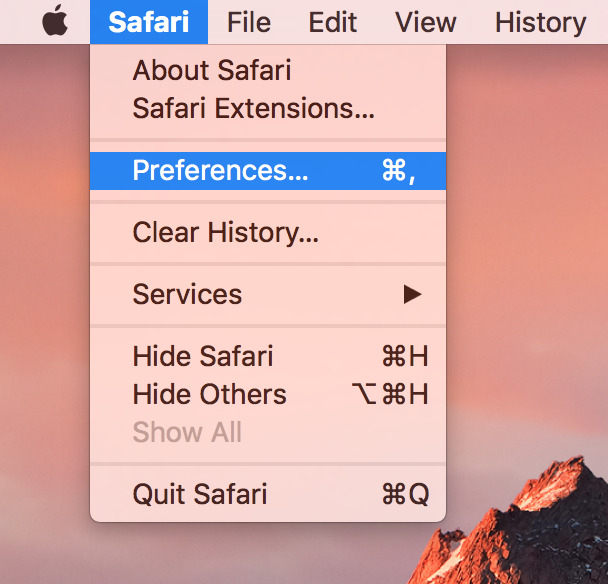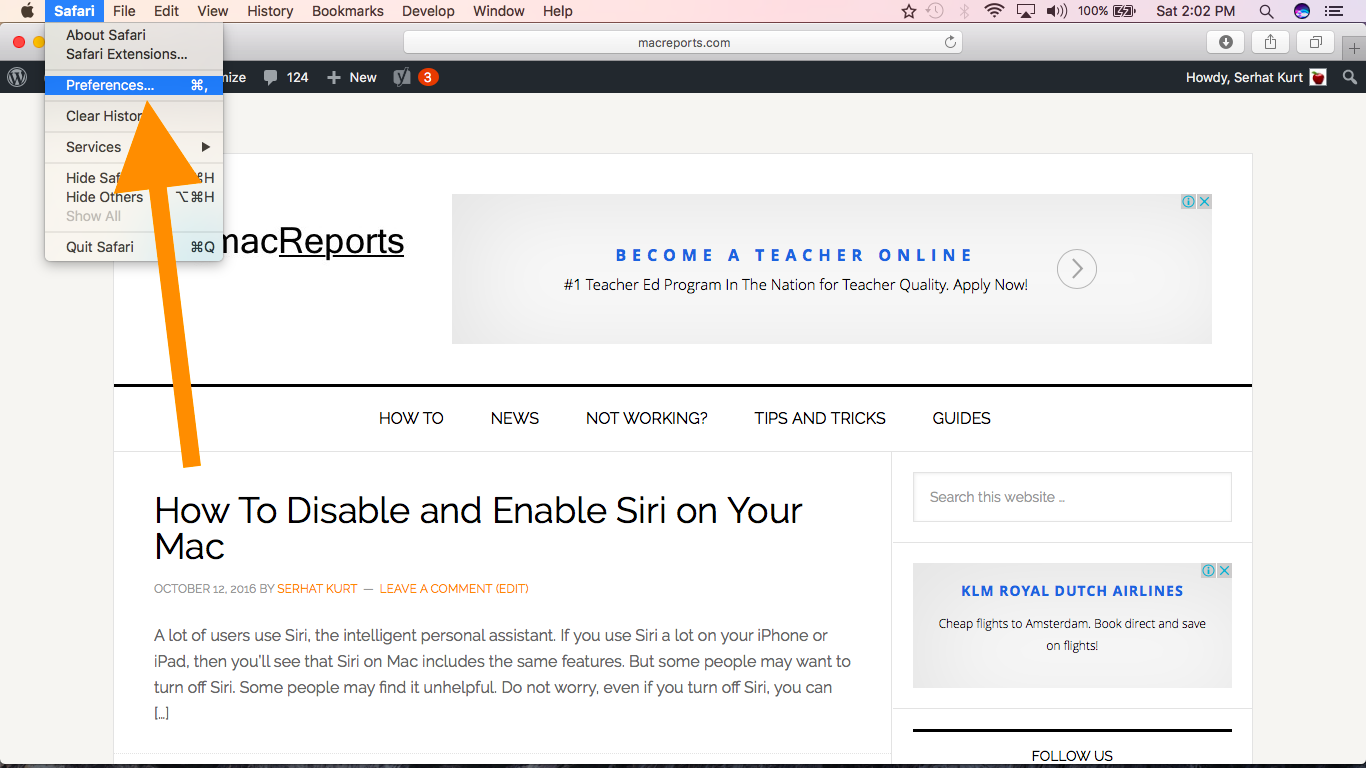

Remove history items will reflect the number of days it’s supposed to keep it with 365,000 being the option for “Manually.” SearchProviderIdentifier is referencing one of the listed search engines on the Search tab of preferences. It references the value in the dropdown for the preference for “Remove history items: ” in the Safari preferences window. The DownloadsClearingPolicy is obviously not a boolean like some of the others. Presence of one of these keys means that a user has changed from the default before! After I changed them back to their default values, they still remained present in the file. The following values were added to my plist file only after they were changed. Doing a side-by-side comparison of the original to the new gives me several interesting values to track. You can see the new settings here:Ĭhanging the settings then presents several new keys that aren’t in the original file. For example, if the user has never changed the following settings, there will not be a record referencing them in the plist:įor this next test I have gone through and changed a bunch of settings. The interesting thing about this plist file is that many of the preferences will NOT be present in this file if they have never been changed from the default. These preferences can be found in ~/Library/Containers//Data/Library/Preferences/. I never played it.) Safari could still open a file FOR the user even if the user never intended to. (Gee officer, I didn’t know that video had bad stuff in it. Items that Gatekeeper deems “safe” it will automatically open after download. Open Safe Files: If you’re trying to prove if the user “opened” a file this can complicate things.Meaning that by default only the last day’s downloads will be available for review.

Downloads: Safari only tracks the last 20 downloads in the ist file, but this setting keeps that information only to the last 1 day as well.This differs from the 30 days of history that iOS keeps. History: Safari for macOS will only keep 1 years worth of web history (by default).Three points specifically I always like to mention when it comes to active investigations are as follows: The biggest issues we see here is how the default settings can complicate an investigation. Safari, by default, records the following preferences: (Link: ) I figured that with Safari 14 updated, it’s good to just revamp the post and give everyone a rundown of location values of specific files and how they can play info your investigations. Earlier this summer, I wrote a blog post on the main Magnet Forensics’ blog to discuss some of my findings on Safari preference data. After updating, I started checking on some preferences to make sure they hadn’t moved. Safari 14 is the version that will ship as part of iOS 14 and macOS 11.
#Safari preferences update
Recently I got an update notification for Safari 14. In the days of online conferencing and video chatting, its important to know if a site has been asking for certain information from the user and whether or not the user has accepted. This is done in the form of pop-ups that appear at the top of Safari asking a user if they want to extend specific preferences for a website to do a specific task. This can help guide me toward specific things to look for that may have been generated by an application.įor Safari, Apple also wants to extend that same protection and control to its users. These databases are always a hot point of investigation for me because I’m always curious as to what permissions the application has asked for, as well as what permissions the user has granted. This is tracked as part of Apple’s “Transparency, Consent, and Control” and tracked within the TCC.db across macOS and iOS. I’ve always been fascinated with tracking browser preferences and due to the nature of how Safari operates, I feel that it’s one of the most important browsers to track and understand the preferences of.Īpple likes to make sure that there’s a level of protection between a user and granting permission for an application to do something. With new OS versions is always going to come a lot of new artifact testing. Apple is about to release two new OS upgrades in the form of iOS 14 and macOS 11 (whoa, that’s weird to say) this fall.


 0 kommentar(er)
0 kommentar(er)
